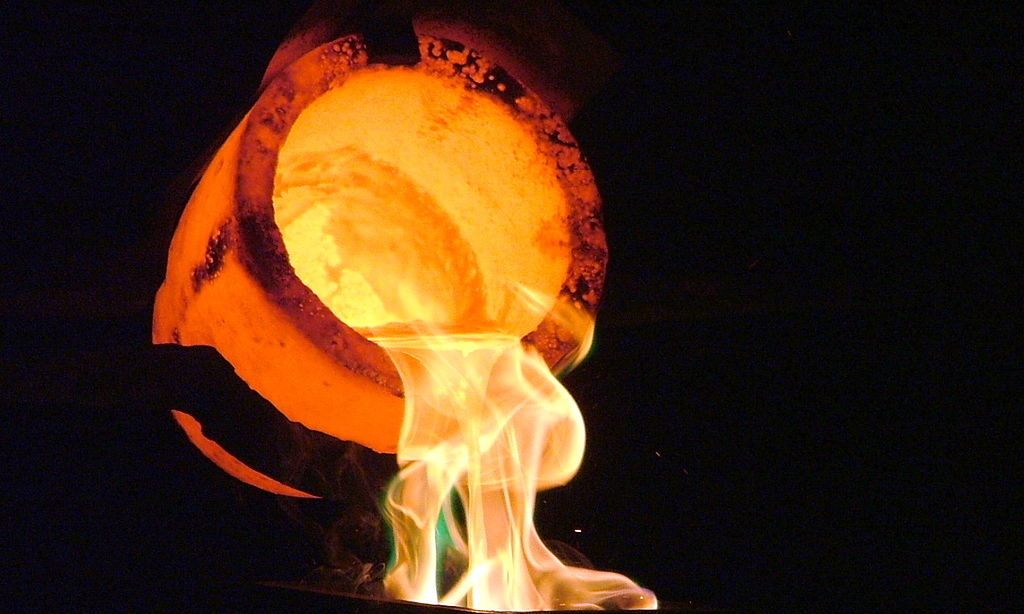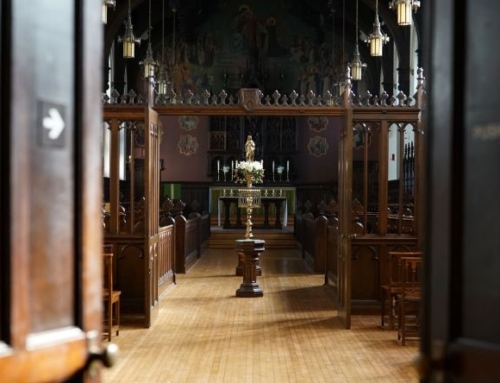In the past, human beings made gods in their own image. This is seen most clearly in the ancient polytheistic religions. These pagan religions often formed their gods out of silver or gold, which required a tremendous amount of effort and diligence. In fact, purifying silver and gold requires extreme temperatures: 1,763 degrees fahrenheit for silver and 1,943 degrees fahrenheit for gold!
In other words, the ancients had to work very hard to mold idols into the images of their pagan deities. The labor itself was both a sacrifice and a work of devotion.
Today’s first reading from the book of Wisdom turns this concept on its head. Rather than man forming the image of a god with gold in the furnace, our God—the God of Israel—forms us into his image:
God formed us to be imperishable; the image of his own nature he made us … As gold in the furnace, he proved them, and as sacrificial offerings he took them to himself. In the time of judgment they shall shine and dart about as sparks through the stubble; they shall judge nations and rule over peoples, and the Lord shall be their King forever. (Wis 2:23; 3:6-8)
The analogy of gold in the furnace shows that God deeply cares about each of us. When the molder forms the work of his craft, he also purifies the work from any impurities. Similarly, when God begins his work in us, he purifies us from the effects of sin. And as we know from experience, the process of purification can sometimes take a while! This great analogy not only shows God’s justice, but it shows his tenderness and love.
God’s justice and love are not restricted to this life. In fact, this reading from the book of Wisdom concerns principally the souls of our deceased brother and sisters. We hear today that “the souls of the just are in the hands of God and no torment can touch them. They seemed in the view of the foolish to be dead … but they are in peace” (Wis 3:1-3).
This purification described in the first reading is particular to purgatory. The Church teaches the following about this state of purification:
All who die in God’s grace and friendship, but still imperfectly purified, are indeed assured of their eternal salvation; but after death they undergo purification, so as to achieve the holiness necessary to enter the joy of heaven. (CCC 1030)
It is a grace to have a loving Father who loves us so much! He purifies us from the things that make us less human and less good. Despite the discomfort that the souls in purgatory experience by way of this purification—much like being thrown in the fire of God’s love—it is not a torment like damnation. The book of Wisdom reminds us that no torment can touch the souls in purgatory, they do not undergo an everlasting punishment for the sins that they have committed.
After the assurance that the souls of the just will be purified, the book of Wisdom reads, “these souls will shine and dart about as sparks through the stubble” (Wis 3:7). Gold is beautiful and bright when it has been purified. And God reminds us that our souls will be beautiful and freed from the stains of sin after purgation.
How much more could we ask of the divine molder who does not punish us for the sins that we commit but rather purifies those who take refuge in him! Our divine molder works on us, so that we can be with him forever in the life to come.
✠







